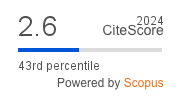Prediction of Research Project Execution using Data Augmentation and Deep Learning
DOI:
https://doi.org/10.4114/intartif.vol26iss71pp46-58Keywords:
Research project execution, data augmentation, deep learning, nominal featuresAbstract
This paper presents the results of seven deep learning models for prediction of research project execution in graduates from a public university in Peru. The deep learning models implemented are non-hybrid: Deep Neural Networks (DNN), Long Short-Term Memory (LSTM), Gated Recurrent Unit (GRU), Convolutional Neural Networks (CNN) and, hybrid: CNN+GRU, CNN+ LSTM and LSTM+GRU. Since most of the dataset prediction features are of the nominal type (true false), this paper proposes a simple novel data augmentation technique for this type of features. Taking as inspiration the input data type of a neural network, the proposal data augmentation technique considers nominal features as numeric, and obtain random values close to them to generate synthetic records. The results show that most of deep learning models with data augmentation significantly outperform models without data augmentation in terms of accuracy, precision, f1-score and specificity, being the main improvements of 17.39%, 66.67%, 25.00% and 25.00% respectively.
Downloads
Metrics
Downloads
Published
How to Cite
Issue
Section
License
Copyright (c) 2023 Iberamia & The Authors

This work is licensed under a Creative Commons Attribution-NonCommercial 4.0 International License.
Open Access publishing.
Lic. under Creative Commons CC-BY-NC
Inteligencia Artificial (Ed. IBERAMIA)
ISSN: 1988-3064 (on line).
(C) IBERAMIA & The Authors









